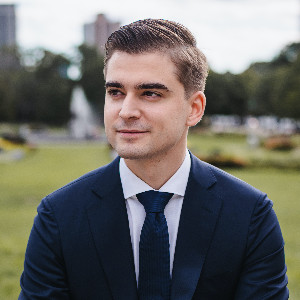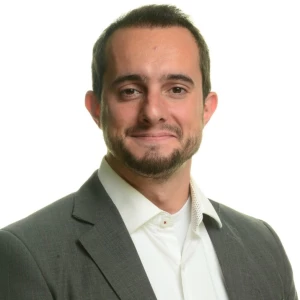Hi,
How many clarification questions after the case prompt are actually "too many"? Is more than 6-7 clarification questions would be too much?
Hi,
How many clarification questions after the case prompt are actually "too many"? Is more than 6-7 clarification questions would be too much?


Hi Nika,
depends on what kind of questions and long it takes to answer them. Asking Qs after the case prompt should neither be (1) random or (2) focused on solving the actual case already (since you are focusing on nothing else but drafting the structure as a next step).
Purpose of asking questions should be (1) defining the goal and the scope of the case, and (2) understand basics about the situation at hand (e.g. business model of the client, its market, competition, customer). Obv you will not be able to ask about all of this (this is part of the challenge in a case interview).
This will different with each interviewer, I d be OK answering Qs for perhaps 1 minute, at most (!) perhaps 2. This translates probably into 2-3 questions phrased in a meaningful way and asnwered by me in a meaningful way.
Best,
Denis

Hey there,
There is no hard rule on how many questions are too many. I'd like to change your perspective a bit here:
In general, focus on quality over quantity. Focus on the questions that enable you to derive value from the answer for your approach to the case.
You could ask 5 questions that are absolutely unrelated to the case prompt and client problem and won't help you come up with a proper issue tree. From my observations the more questions a candidate or coachee asks the more insecure they appear. They are fishing in the dark and appear a bit clueless.
Then, you could ask 1 or 2 killer questions that give you a lot of insights into the client's problem, thereby influencing your approach and shaping your hypotheses.
Summing up, try to focus on these killer questions that are
Cheers,
Florian

Oh boy! Yes, 6-7 is far too many!
You should ask 2-3.
What do you ask? Well 1) What don't you understand (in particular, about the business model and the question/promot) and 2) What will narrow your framework
I always write BOTMG at the bottom of my framework page to help myself think of things I'm missing in case I'm stuck.
This helps "trigger" you to consider questions around B = Business Model, O = Objective, T = Timing, M = Market, G = Geography.

Hi Nika,
There is no strict limit, but 6-7 sounds too many.
The main questions you should ask are related to:
Usually 3-4 questions max should be sufficient for that.
Best,
Francesco

With the exception of the ambigious final round cases at McKinsey, the majority of McKinsey cases are designed where you are typically provided with all the information you need. Specifically, 6-7 questions does feel a little high where I woud definitely avoid asking certain blanket questions (e.g., are there any other objectives?) for the sake of just asking. My general tip is to ask clarification questions that help you develop a better hypothesis and prioritise your structuring. It makes a huge difference yet I had very few final round candidates who did so during their case.

Hi Nika,
Very simply, the questions should be focused on the biggest gaps (about the company- customers, channels, products, processes, technology etc) and external factors- market, geography, region, competition etc) that you want to fill to move towards your framework/structure successfully. 2-3 key questions are okay and one or two tell and clarify questions. Space them out and come across as you are in the lead in asking those questions.
Good luck!

Yes, more than 6-7 would be too much.
Typically you should not ask more than 3-4. And in addition, they should be very targeted. It can be all questions that help you understand the problem better, and not related to developing the solution. That comes during the execution following your framework.
Typical questions could be (to give you an idea of what topics can be covered, though keep in mind these are 100% dependent on the case context):

Hi there,
usually, you would ask 2-3 questions related to the case. The thing is, if you're trained enough in casing and have a great skill in note taking, you don't need to ask 6-7 questions.
For note-taking, check up these Preplounge threads:
https://www.preplounge.com/en/consulting-forum/note-taking-8906
https://www.preplounge.com/en/consulting-forum/how-to-improve-notes-taking-during-case-interview-8965
Hope it helps!
Cheers,
GB

I want to point out that for McKinsey style cases you should not ask too many clarifying questions as all of the information is typically provided to you.

Hello!
There are no "strict" rules or magic numbers here, since it depends very much on the complexity of the case, information given, etc.
however, it´s true that 6-7 seem too many
Hope it helps!
Cheers,
Clara












